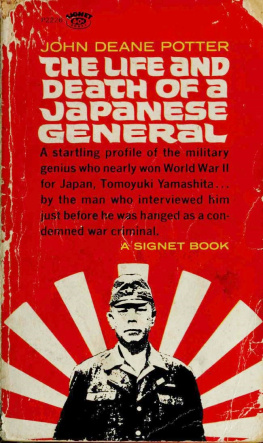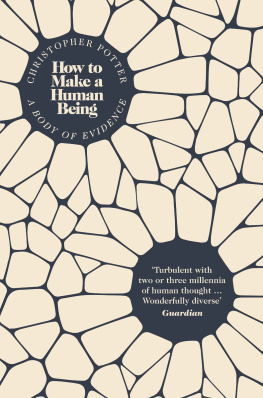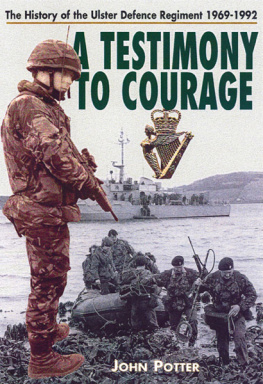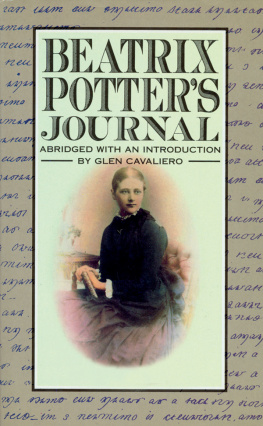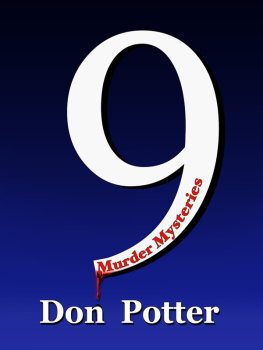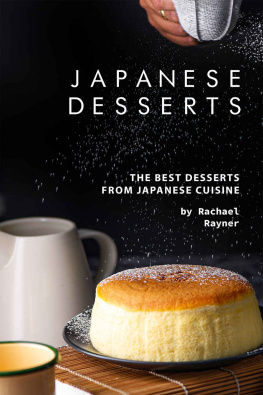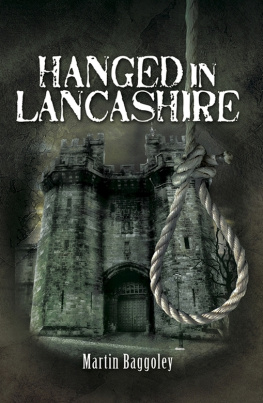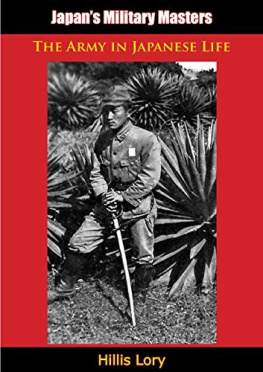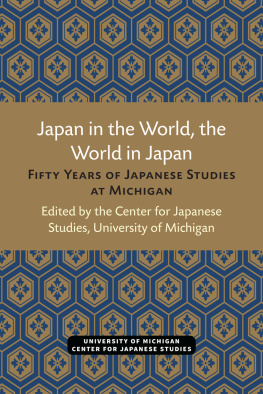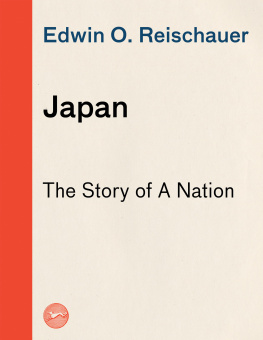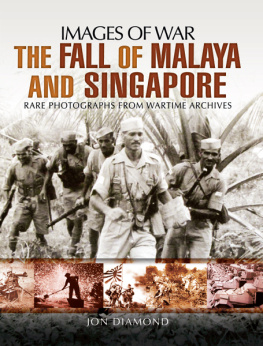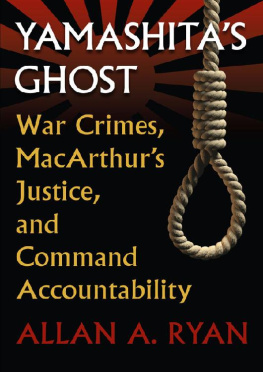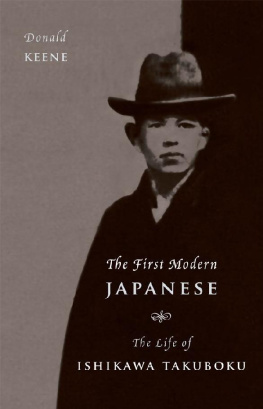Potter - The Life And Death Of A Japanese General
Here you can read online Potter - The Life And Death Of A Japanese General full text of the book (entire story) in english for free. Download pdf and epub, get meaning, cover and reviews about this ebook. year: 2012, publisher: Signet;Literary Licensing, LLC, genre: Detective and thriller. Description of the work, (preface) as well as reviews are available. Best literature library LitArk.com created for fans of good reading and offers a wide selection of genres:
Romance novel
Science fiction
Adventure
Detective
Science
History
Home and family
Prose
Art
Politics
Computer
Non-fiction
Religion
Business
Children
Humor
Choose a favorite category and find really read worthwhile books. Enjoy immersion in the world of imagination, feel the emotions of the characters or learn something new for yourself, make an fascinating discovery.
- Book:The Life And Death Of A Japanese General
- Author:
- Publisher:Signet;Literary Licensing, LLC
- Genre:
- Year:2012
- Rating:3 / 5
- Favourites:Add to favourites
- Your mark:
- 60
- 1
- 2
- 3
- 4
- 5
The Life And Death Of A Japanese General: summary, description and annotation
We offer to read an annotation, description, summary or preface (depends on what the author of the book "The Life And Death Of A Japanese General" wrote himself). If you haven't found the necessary information about the book — write in the comments, we will try to find it.
The Life And Death Of A Japanese General — read online for free the complete book (whole text) full work
Below is the text of the book, divided by pages. System saving the place of the last page read, allows you to conveniently read the book "The Life And Death Of A Japanese General" online for free, without having to search again every time where you left off. Put a bookmark, and you can go to the page where you finished reading at any time.
Font size:
Interval:
Bookmark:
by
John Deane Potter
SIGNET BOOKS are published by
The New American Library of World Literature, Inc.
501 Madison Avenue,
New York 22, New York
LEYTE
LUZON
MANILA
... places where thousands of Americans died, bloody battles that finally turned the tide for America in World War II. Who was the man who led the Japanese to fight so tenaciously in the face of certain defeat, who cost the Americans such a hard-won victory?
While Manila was being razed and raped by Japanese troops, while* his soldiers were dying of starvation in the hills, Tomoyuki Yamashita finally bowed to the orders of his Emperor and surrendered to American forces. Official historian Robert Ross says of the brilliant general, No one can ever dispute the fact that Yamashita executed one of the most effective delaying actions in the whole history of warfare.
Yamashita was the first Japanese to be tried as a war criminal; as general he was held responsible for the atrocities committed by the soldiers under his command. Was his conviction in accordance with the code of American justice? Or was he a scapegoat of war, was he sent to the scaffold in vengeful retaliation for overwhelming American losses?
JOHN DEANE POTTER is a novelist, newspaper columnist, TV writer, and BBC broadcaster. He served with the British India Army and the first and second Wingate Expeditions (long-range commando units) in the Asian theater of action in World War II. While in the Philippines heading up the London Daily Express war correspondents team, he interviewed General Yamashita in the military prison near Manila. He later spoke, at length, with the generals widow, who gave him access to her husbands papers, books, and photographs.
I met Japans most famous general, Tomoyuki Yamashita, in a cool, clean cell block of the New Bilibid prison, twenty-five miles from Manila, where he was awaiting trial as a war criminal.
Dressed in a white silk shirt and high, brightly polished jackboots, he was sitting on a wooden bench outside his ten-foot cell. In the cell block were sixteen other Japanese generals and admirals, reading or writing at a long, scrubbed wooden table.
Yamashita talked to me at length about his career, from the time he left the little mountain village to when he became Japans foremost generala career that was to lead him to the whitewashed cell where he was sitting.
He was homely, and one could see how he got his Filipino name Old Potato Face. But when he took off his glasses, his rugged face looked almost benign.
He waved his spectacles toward the twenty-one-page file which contained the indictment against him. Moon-faced General Muto was carefully reading the charges while we talked. Muto, the perfect staff officer, unmoved and efficient although he was also being held as a war criminal, rapidly covered sheet after sheet with notes as he read, trying to refute the allegations against his commander in chief.
What was Yamashitas own view of the charges? Let me put it like this, he said. My command was as big as Mac-Arthurs or Lord Louis Mountbattens. How could I tell if some of my soldiers misbehaved? It was impossible for any man in my position to control every action of his subordinate commanders, let alone the deeds of individual soldiers. The charges are completely new to me. If they had happened, and I had known about them, I would have punished the wrongdoers severely.
He paused to light an American cigarette, then said with resignation: But, in war, someone always has to lose. What I am really being charged with islosing the war. Then he added with a smile. It could have happened to General Mac-Arthur, you know.
We talked of the end of the war. Japan would have lost, he said, even if the atom bomb had not been developed. We were too weakwe started with too few resources. Of course, the bomb and the entry of Russia had a tremendous effect on our civilian population. But all it did was to end the war a little more quickly. It would have made no difference in the long run.
Yamashita readily discussed his Malayan campaign with me, drawing neat, soldierly maps of the country, with arrows showing where he had hooked behind the British forces to cut them off.
Malaya gave me quite a lot of worry, he admitted. Some of the soldiers from Britain and Australia fought like fine, brave men. I cannot, unfortunately, say the same thing about the Indian troops, whowell, the kindest thing to say about them is that they disappeared into the jungle when they saw us.
What beat the British troops, I think, was our tactic of landing behind them in little ships and cutting them into small sections.
Yamashita revealed a significant piece of secret history to me. He said that after he had taken Singapore, he wanted to discuss with Tojo a plan for the invasion of Australia, and sent him a message: Singapore, the great British bastion in the Far East, has fallen into our hands. The Allies are effectively sealed off . Instead of an advance farther west into Burma and perhaps India, his plan was to leave a strong garrison in Malaya and Burma and strike down the Pacific to the coast of Australia.
Tojo turned down the plan, making the excuse of lengthened supply lines, which would be precarious and open to enemy attack. But his real reason, apparently, was that he wanted to keep driving west to try to effect a junction with Hitler. In those days when the Axis seemed unbeatable, this meeting was probably scheduled to take place somewhere in the Punjab.
Yamashitas plan to conquer Australia was practically identical with his successful campaign in Malaya. He intended to land on each side of the major Australian cities and cut them off, first making a series of dummy landings to draw off the pitifully few Australian troops.
Why, there were hardly enough Australians to have organized an effective resistance to the Japanese Army, Yamashita said. All they could ever hope to do was make a guerrilla resistance in the bush.
With even Sydney and Brisbane in my hands, it would have been comparatively simple to subdue Australia. I would never visualize occupying it entirely. It was too large. With its coastline, anyone can always land there exactly as he wants.
But it is a long way from anywhere and I could have poured in enough troops to resist effectively any Anglo-American invasions. Although the Japanese General Staff felt my supply lines would have been too long, so would the American or British lines. They might never have been able to reach the place at all. We could have been safe there forever.
In my possession is a long, blue note engraved with the words: The Japanese Government. One Shilling. After the surrender, stacks of these were discovered in Tokyo, ready in the event of an invasion of Australia. There were pound notes, shillings, and sixpences, all in paper money.
The government machinery for ruling Australia was also prepared. Several Japanese diplomats who had represented their government in Canberra were briefed to follow the Japanese armies into Australia and rule the country for the Emperor. One of them, whom I met later in Osaka, had been nominated as governor general.
If he seemed a little wistful about the invasion of Australia which never came off, Yamashita was philosophical, as a good Japanese should be about what he regarded as his inevitable execution. His face was unrevealing as he said to me: My death does not matter. I know nothing except being a soldier and now I am no longer young. My usefulness to my country is over. I am too old to fight another war, so if the Americans wish to kill me, they will not be harming my country. When I rose to leave him for the last time, Yamashita bowed politely and walked with me to the door. Several other generals were sitting in the corridor, playing a game with hundreds of counters which looked like checkers gone crazy. When I asked him what this was, he replied, blankfaced and unsmiling: That is a typical game of ours, called Go. It is very Japanese indeed. The idea of so many counters is so you can take as much territory as you can from your opponent in the shortest time.
Next pageFont size:
Interval:
Bookmark:
Similar books «The Life And Death Of A Japanese General»
Look at similar books to The Life And Death Of A Japanese General. We have selected literature similar in name and meaning in the hope of providing readers with more options to find new, interesting, not yet read works.
Discussion, reviews of the book The Life And Death Of A Japanese General and just readers' own opinions. Leave your comments, write what you think about the work, its meaning or the main characters. Specify what exactly you liked and what you didn't like, and why you think so.

